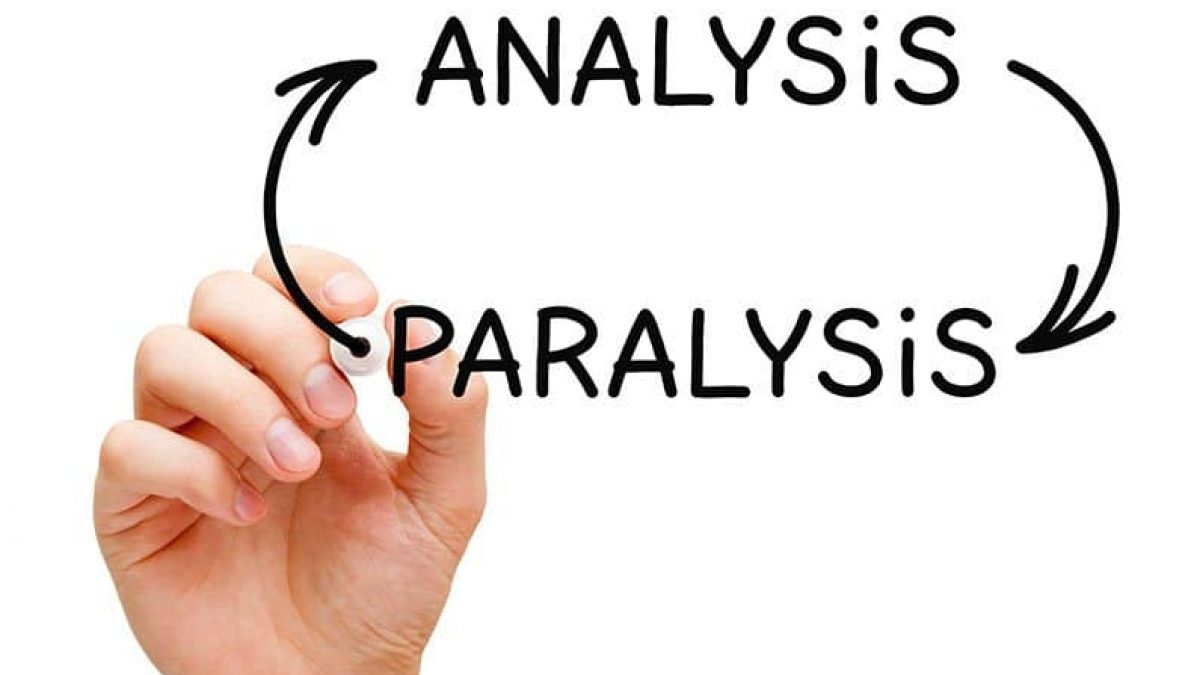Analysis Paralysis
Thursday 28th October 2021 Dave Sharp Start Ups!
As a consultant, I'm often dealing with companies who are struggling to make a decision or choice, and have drifted into something called "analysis paralysis". This is a syndrome where there was no obvious or clear choice and the company has started to over think or constantly search for more information that will lead them to a mythical thing - "the answer". This is often the direct result of choices being difficult, controversial or expensive, and the person tasked with making the decision is afraid of making a mistake, or believes that if they just keep going, there is a better solution waiting for them around the corner.
Though we’ve never had more access to data to help us make decisions, it hasn’t made decision-making any easier. We can now google the pros and cons of each and every option available. A simple search can often open a black hole of link clicking that can end hours later with more confusion than ever as to what is the right choice.
Fear can be a powerful motivator - but only in small doses. Fear in larger amounts can be crippling and destructive. So how does a company that is afraid of making decisions deal with the pressure and make realistic decisions under the weight of its concerns?
Validation
If companies are following a framework like Lean Startup - then there can often be a focus on validation before resolving a decision. Many get "stuck" here, constantly looking for further validation. At some point the company needs to take a step back and look at the bigger picture and ask "What progress are we making?" If the answer is nothing or very little then continuing to stick with the framework doesn't make much sense. Try and get the project moving again just using gut feeling and intuition. You can always come back to the framework at a later date.
Experiment
Its hard to create the right experiments, they can be seen as long-winded, difficult and often inconclusive. However, a failed experiment is a very valuable insight into what your business is contemplating. Edison had multiple goes at inventing the light bulb, most failed, but that sequence of failure was the learning pathway needed to succeed. Start-ups must see experiments for what they are - a vital knowledge creation exercise that creates a path to succeeding.
A good experiment will create a clear outcome. The same statement is correct for customer development interviews. There must be a very specific point to account for the time and the effort. Good experiments and customer development interviews will make decision-making easier, and lead to specific next steps. If that’s not the outcome you're getting then figure out why and change the process behind experiments and interviews. Otherwise you’ll absolutely be paralysed.
Curb Curiosity
One contributing factor to analysis paralysis are details; specifically, to excavate deeper and deeper every new detail that ais uncovered. To lessen the curiosity that asks for more information (and therefore stalls progress), set yourself limits for what you need to know now and what you’d like to know in the future. If the information you have now answers the call, move forward.
There is no perfect answer
Regardless of how much information you have, there will always be more. Decisions can never be optimal for this reason. There are, however, ideal moments during which decisions can be made. Remember, just because you arrive at one answer doesnt mean thats the only answer and doesnt mean you cant transition from one to the other over time.
Practical Tips
- listen to your gut, and do something, pick a viable option and take action.
- conduct more experiments.
- apply a method to the chaos and improve your focus.
- don’t stare at the screen wait for something to happen.
- mentors can help too - get some experienced input - outside opinion may shake you loose.
Next Article
There is a long-established bit of wisdom that says that ideas being exposed to 3rd parties by the creators should be covered by a non-disclosure agreement (NDA). The concept has existed for generations and in a dates to a pre-digital era. In the modern world of entrepreneurism and investing, is an NDA still a valid requirement? Why do many investors refuse to sign them and what are the implications?
Previous Article
Investment deals that are subject to a IT due diligence process have a higher chance of success. IT due diligence creates evidence-based reporting that contributes to making informed decisions by driving the quality of information available to decision makers. This article covers the basics of the due diligence process.